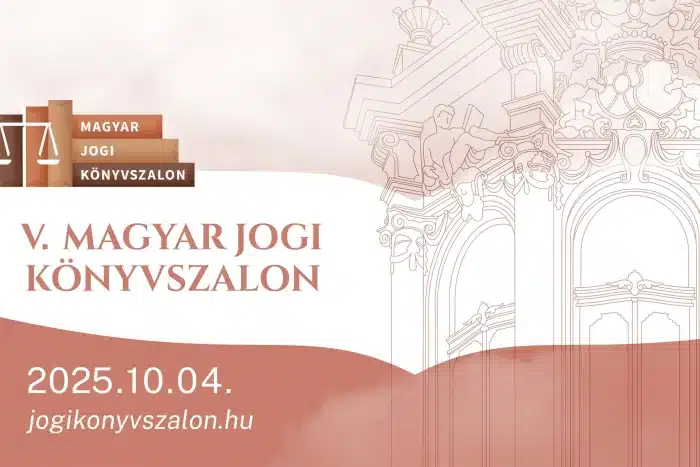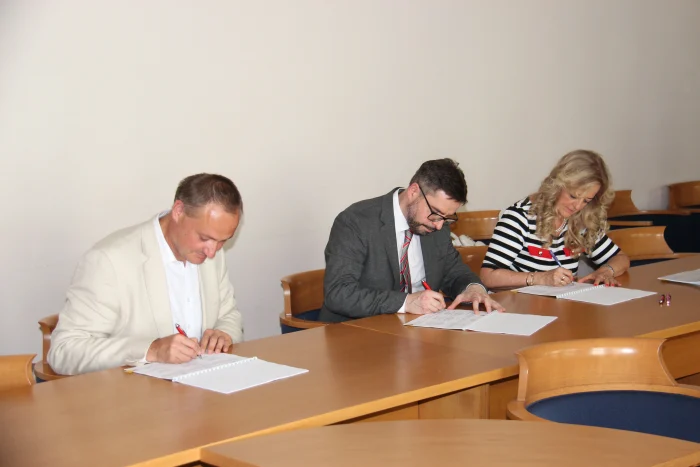5 March 2025
“Transnational migration crimes” is a research group operating as a part of the Central European Academy. The Group is involved in many field research. We are obliged to write a book and every researcher should prepare a book chapter. The aim of the book is the characterisation of main issues related to transnational migration crimes. The book will be composed of 5 chapters.
- The first part is devoted to international standards related to crossing the border.
- The second issue is the main cause of illegal migration, what effects it raises in criminal activity, as well as what problems it raises in terms of law enforcement actions.
- The subject of the next chapter will be issues devoted to illegal migration in the context of terrorist threats.
- The last part of the book will be devoted to classification of the migration-related criminal offences in national legal systems, especially Hungarian law.
The second part of our research relates to preparing articles connected with migration problems. My article relates to Border control of persons in the light of ECtHR case-law.
The third part of our research is connected with participating in international conferences. The first conference was in Warsaw in December 2024. The second conference is planned in Miskolc in Hungary. My speech will be devoted to international cooperation in criminal matters in combating illegal migrations. Effective fighting with illegal migration demands international cooperation between states. Currently the cooperation is based on the UN Convention on transnational organised crime and the Protocol to it. It is worth to bring the regulations contained in the treaties related to international cooperation.
Today I have organized a dissemination event to discuss with you two topics related to migration.
The event was organised as part of the Central European Professors’ Network, coordinated by the Central European Academy.
Name of the event: Transnational migration crimes – challanges and perspectives Research group: Transnational migration
Date: 5 March 2025 crimes
Venue: Cardinal Stefan Wyszynski University in Warsawa Organiser: dr Krzysztof Masło
Type of the event: open lecture for the students
First of all, I’d like to commence that migration is a real international problem and many countries from different geographical regions face irregular migration. Despite international law, there is little regulation of population flows between states. On the one hand, this emphasises the sovereign competence of states to determine who to allow into their territory and by what means to combat illegal immigration. On the other hand, it hinders the cooperation of states (especially of a criminal nature) in combating migration crime. The obligations related to migration are of a substantive and procedural nature. Substantive obligations create offences and the scope of state jurisdiction. Procedural obligations establish the forms of international cooperation of states in the fight against – especially irregular – migration.
The freedom of states to combat illegal immigration is not unlimited. Its scope is influenced by international human rights law and, in the European human rights protection system, by the case law of the European Court of Human Rights (ECHR). Back in the 1950s, the international community regulated refugee status. Since then, this status has evolved significantly. In addition, some international organisations have developed their own regulations on migration policy. Of particular importance here are the regulations adopted within the European Union.
International law does not, in principle, regulate the issue of access of aliens to the territory of a state and does not prescribe that a state must allow aliens into its territory. No general international norm, either customary or treaty-based, has developed in this regard. Some international agreements (in particular those on international human rights law) have only regulated so-called internal migration, when the foreigner is already legally on the territory of the state. According to Article 13 of the Universal Declaration of Human Rights (PDPC), every person is entitled to freedom of movement and settlement within the borders of any State (para. 1) and to leave any country, including his own, and to return to his country (para. 2). An analogous regulation was adopted by the International Covenant on Civil and Political Rights. In Article 12, it proclaimed the right of everyone to leave any country, including his or her own
The event was organised as part of the Central European Professors’ Network, coordinated by the Central European Academy.
Name of the event: Transnational migration crimes – challenges and perspectives Research group: Transnational migration
Date: 5 March 2025 crimes
Venue: Cardinal Stefan Wyszynski University in Warsaw Organiser: dr Krzysztof Masło
Type of the event: open lecture for the students
country, and granted the right to freedom of movement and freedom to choose his or her place of residence for everyone lawfully residing in the territory of that country. In European terms, these rights derive from Protocol No. 4 to the European Convention on Human Rights (Article 2) and – in part – by the EU Charter of Fundamental Rights (Article 45). However, no obligation on the part of a state – other than the state of its nationality – to admit a foreigner to its territory derives from these regulations. Moreover, even the rights guaranteed by the ICCPR and the ECHR may be restricted for reasons of state and public security, maintenance of public order, prevention of crime, protection of health or morals, or protection of the rights and freedoms of others.
It is quite generally accepted in international practice that states are entitled to regulate access to their territory for foreigners. A state is therefore free to grant and restrict the right of entry to foreigners into its territory, unless otherwise provided by its international agreements. However, this entitlement has been subject to quite dynamic changes in recent years, influenced by the increase in migration to developed countries, in particular the countries of the European Union (EU). States conclude numerous international agreements that liberalise international movement of persons and make the regulation of migration of foreigners the focus of regional integration organisations. Of particular importance in this context are the institutions of asylum and international protection, including refugees. At the same time, states are developing international cooperation to prevent irregular migration (e.g. by readmitting aliens illegally present on the national territory) and to combat crime related to irregular migration.
I would like to tell you about the need for the creation of new eurocimes. The EU has the competence to establish minimum standards for criminalisation at European level and to define penalties for certain offences (so-called Eurocrimes). Article 83(1) TfEU includes the following eurocrimes: terrorism, trafficking in human beings, sexual exploitation of women and children, illicit drug trafficking, illicit arms trafficking, money laundering, corruption, counterfeiting of means of payment, computer crime and organised crime. The catalogue of Eurocrimes is not
The event was organised as part of the Central European Professors’ Network, coordinated by the Central European Academy.
Name of the event: Transnational migration crimes – challanges and perspectives Research group: Transnational migration
Date: 5 March 2025 crimes
Venue: Cardinal Stefan Wyszynski University in Warsawa Organiser: dr Krzysztof Masło
Type of the event: open lecture for the students
closed and, depending on the development of crime, the Council may adopt a decision defining other Eurocrimes. However, this is subject to the condition that the offence belongs to particularly serious crime with a cross-border dimension and the type or impact of the offences or the particular need to combat them jointly must be taken into account in the assessment. Such a decision is taken in two stages: first, the Council decides on the addition of a new Eurocrime to the catalogue and then decides on its definition and scope of jurisdiction.
Given the current state of the law, the minimum standards may concern three offences linked to irregular migration such as cross-border organised crime, trafficking in human beings and money laundering. These are the subject of more detailed regulations in secondary legislation, obliging Member States to criminalise certain behaviour in national law and to establish jurisdiction over these offences. However, the criminalisation of these types of offences is of a general nature and does not only apply to migration-related crime. The establishment of minimum standards at European level for organised crime, trafficking in human beings and money laundering contributes significantly to the fight against such crime, but will not lead to stopping the mass migration flows experienced by Southern and Central European countries.
The EU has partially recognised the lack of criminalisation of illegal migration carried out outside the activities of organised criminal groups and, back in 2002, regulated the assisting (including for financial gain) of a non-national to enter or transit illegally through the territory of a Member State. Moreover, the European Commission has not included a proposal for criminalisation in the new migration pact.
The establishment of minimum standards at European level requires an assessment of the fulfilment of the criteria in Article 83(1) TfEU for the establishment of a new Eurocrime. Illegal migration into the EU has assumed such large proportions that Member States have largely lost the ability to effectively control the flow of people across the EU’s external borders.
The event was organised as part of the Central European Professors’ Network, coordinated by the Central European Academy.
Name of the event: Transnational migration crimes – challanges and perspectives Research group: Transnational migration
Date: 5 March 2025 crimes
Venue: Cardinal Stefan Wyszynski University in Warsawa Organiser: dr Krzysztof Masło
Type of the event: open lecture for the students
Illegal migration is thus of a cross-border nature and illegal border crossings have very serious implications for all Member States. This is not only about the financial impact, but above all about prevention. Illegal migration gives rise to other crimes and uncontrolled migration flows pose a threat to the security of EU Member States. Often the driving force behind irregular migration is organised criminal groups, for whom organising the illegal transportation of migrants is a source of income.
Many European countries criminalise illegal border crossing and illegal stays on the territory of a Member State. The lack of criminalisation of illegal border crossing or illegal residence means, above all, the impossibility of criminal cooperation between Member States, as cooperation tools such as the European arrest warrant require the existence of a dual criminality of the offence.
The possible extension of the catalogue of Eurocrimes to include unlawful crossing of the border of a Member State and illegal stay on its territory is not opposed by international agreements binding EU Member States. In contrast, voices condemning the criminalisation of illegal immigration are raised in the Human Rights Council and the Arbitrary Detention Group.
However, possible criminalisation at the European level should be subject to certain limitations.
Firstly, only the unlawful crossing of the external border of an EU Member State should be a criminal offence.
Secondly, only the crossing of a border by a person who does not have the nationality of an EU Member State, or the right to reside in an EU Member State or who does not enjoy international protection in a Member State is to be considered criminal.



